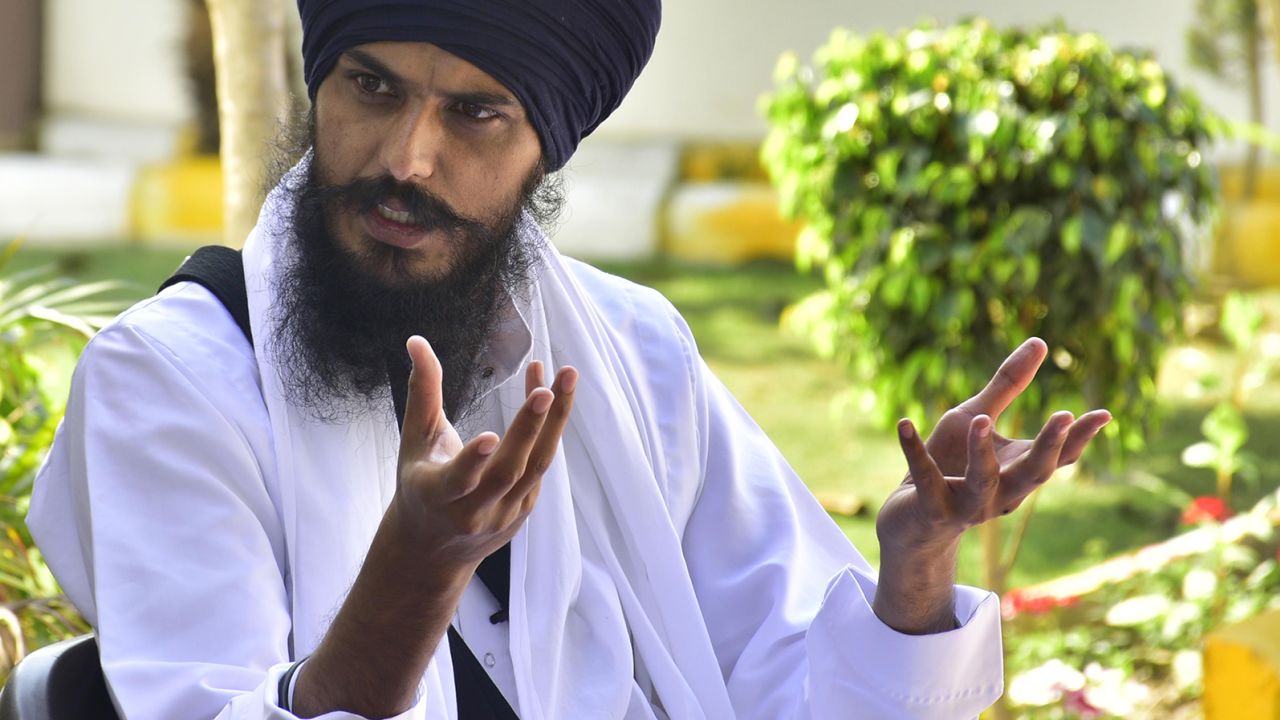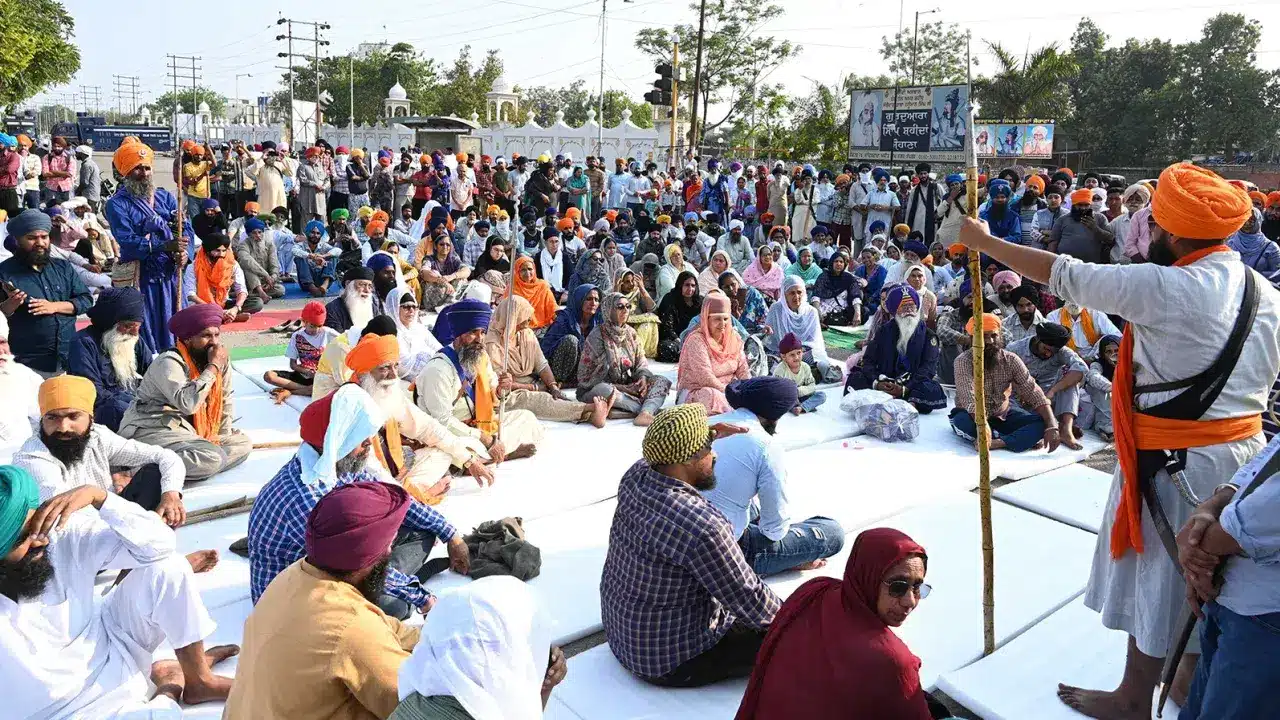While police look for a Sikh separatist on the run, Indian authorities have cut off internet connectivity for some 27 million people in the province of Punjab for a third straight day, one of the largest blackouts in recent years.
Amritpal Singh, a well-known figure within the separatist Khalistan movement that aspires to create a sovereign state for adherents of the Sikh religion, was the target of the Punjab government’s initial 24-hour internet ban on Saturday.
The internet shutdown – which affects everyone in the northern Indian state – was extended by the government for a third time to midday Tuesday under a law that allows the connection to be cut to “prevent any incitement to violence and any disturbance of peace and public order.”
Police in Punjab have justified the internet shutdown as a means to maintain law and order and stop the spread of “fake news.”
Dramatic scenes captured on video and broadcast on local television showed hundreds of Singh’s supporters, some holding swords and sticks, walking through the streets of Punjab. Police and paramilitary troops were deployed across several districts in the state in a bid to maintain law and order.
At least 112 people have been arrested, Punjab police said Sunday, while Singh remains on the run.
For decades, some Sikhs have demanded that an independent nation called Khalistan be carved in the state of Punjab for followers of the minority faith. Over the years, violent clashes have erupted between followers of the movement and the Indian government, claiming many lives.

The violence reached a climax in June 1984 when the Indian army stormed the Golden Temple in Amritsar, Sikhism’s holiest shrine, to capture armed separatists, killing thousands and reducing much of the building to rubble. The carnage roiled the Sikh community and India’s former prime minister Indira Gandhi, who ordered the operation, was assassinated by her Sikh bodyguards in the aftermath.
The Khalistan movement is outlawed and considered a grave national security threat by the Indian government,but maintains a level of support among some Sikhs within the country and overseas.
In a statement Sunday, the World Sikh Organization of Canada (WSO) condemned the “draconian” operation to arrest Singh andsaid it feared “Singh’s detention may be used to orchestrate a false encounter and facilitate his extrajudicial murder.”
Over the weekend, some of Singh’s supporters vandalized the Indian High Commission in London, prompting UK authorities to condemn the incident.
The British High Commissioner to India, Alex Ellis, called the acts “disgraceful” and “totally unacceptable.”
In a statement late Sunday, the Indian Ministry of External Affairs said it is “expected that the UK government would take immediate steps to identify, arrest and prosecute” those involved in the incident.
“There is no place in our city for this kind of behaviour. An investigation has been launched by the Met into today’s events,” London mayor Sadiq Khan tweeted Sunday.
Internet shutdowns have become increasingly common in India, which has more than 800 million internet users – the world’s second largest digital population, behind China.
Earlier this month, a report by Access Now, a New York-based advocacy group that tracks internet freedom, said India imposed 84 internet shutdowns in 2022, marking the fifth consecutive year the world’s largest democracy of more than 1.3 billion people has topped the global list.
The disruptions “impacted the daily lives of millions of people for hundreds of hours,” the report said.
The internet has become a vital social and economic lifeline for large swathes of the population and connects the country’s isolated rural pockets with its growing cities.
The government has repeatedly attempted to justify blocking internet access on the grounds of preserving public safety amidfears of mob violence. But critics say the shutdowns are yet another blow to the country’s commitment to freedom of speech and access to information.

